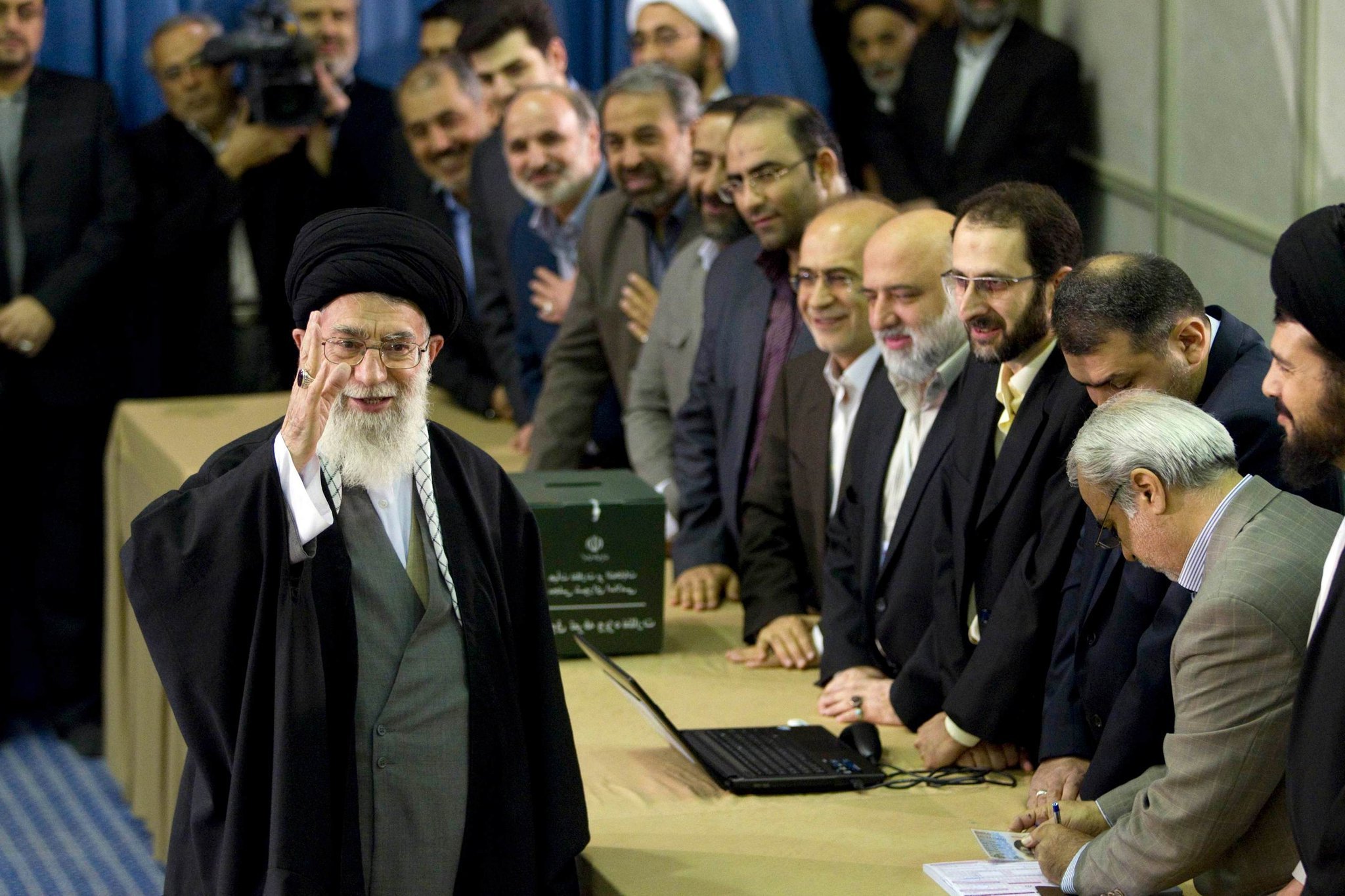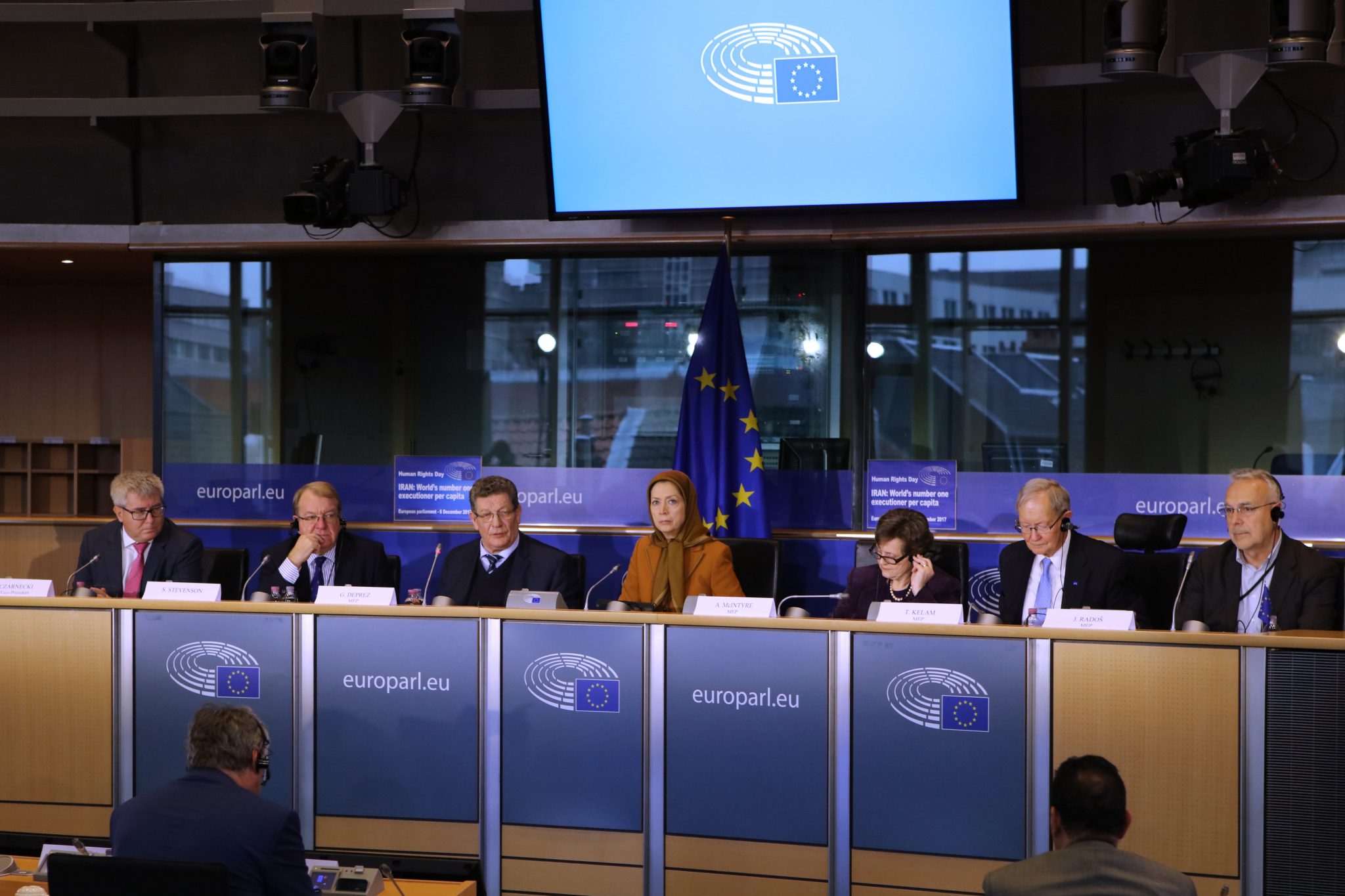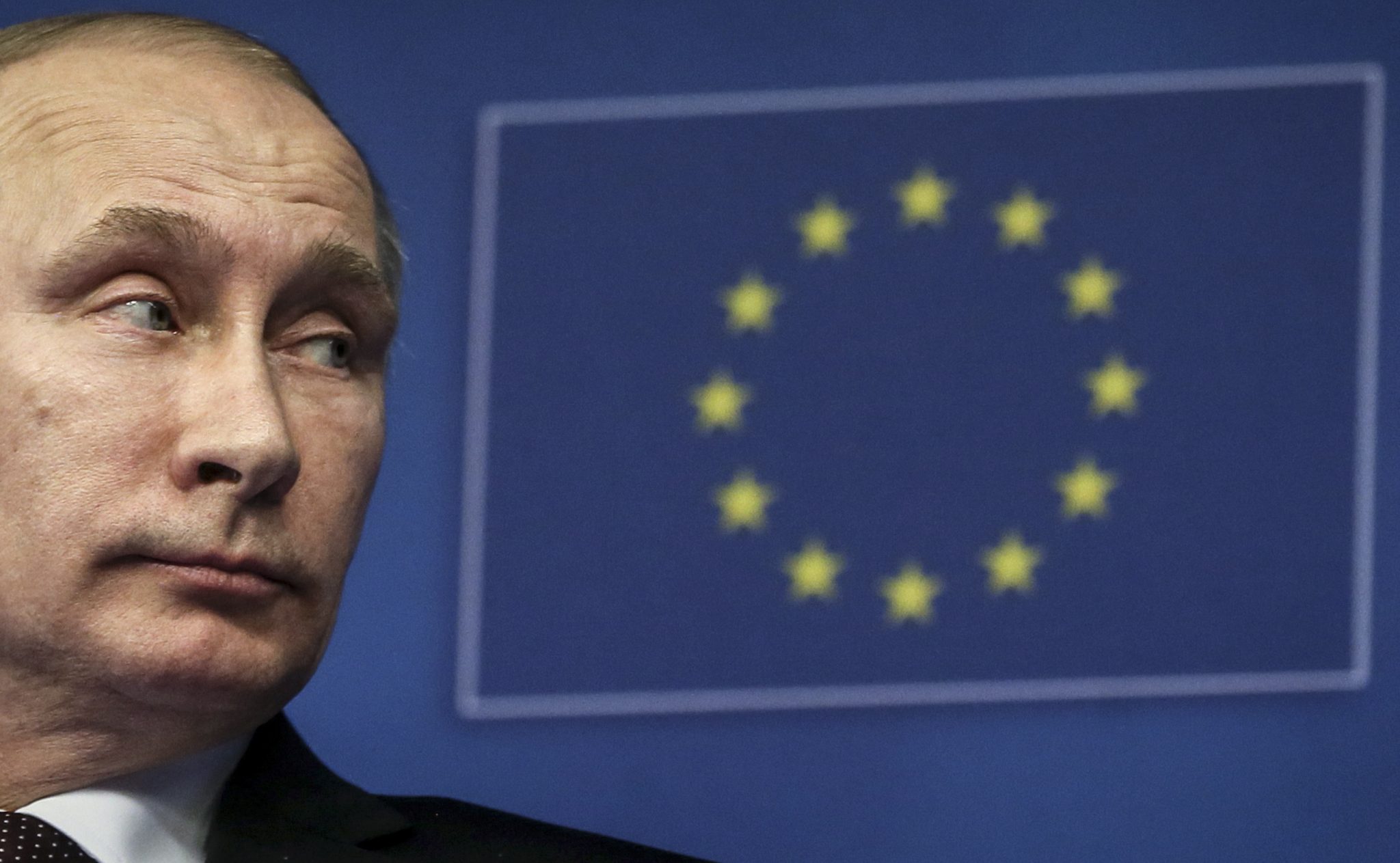
[authorbox authorid=”48″ title=”The Author”]
While Western journalists and politicians see themselves as fit to provide ‘expert’ commentary on Iran and the wider Middle East, the real ‘Iran experts’ – the Iranian people there, more particularly the ethnic minorities who are doubly oppressed under the regime’s deeply racist policies – have no voice in Western media.
This is the voice of an 80-year-old former political prisoner, and Arab Ahwazi whose name must remain anonymous to protect him from the regime who has endured the injustices inflicted by two brutal Iranian regimes, both of which ignored his and other Ahwazis’ voice and plea’s for freedom, democracy, and the human rights supposedly guaranteed to all peoples by the UN’s Universal Declaration of Human Rights. It’s time the world listened.
“Iran is, literally a ‘state of crises’. It has nothing to export to the outside world but crises. Its relationship with the world is not based on mutual interests, but on generating and manipulating crises in order to exploit them for its own benefit.
It suits the agenda of the Iranian political leadership that the lives of its own and other peoples worldwide should be constantly riven by absurd and tawdry manufactured crises that lead to terrible consequences. No place has suffered the presence of Iran’s regimes without being destroyed and becoming a disaster zone.
Iran’s senior politicians boast that they have surrogate militias in many parts of the Arab world that their influence has reached the Mediterranean and the Red Sea and four Arab capitals are under their control. Unfortunately, these claims are partially true.
Iran, which has failed to wrest control over the Arabian Gulf, its old dream since the days of the arrogant Shah’s empire, has succeeded today in penetrating a number of Arab countries through regime-loyalist groups, aided by the chaos across the Arab world. This chaos, which began from the first Gulf War when Iraq occupied Kuwait in 1990, has dragged on through the start of the war in Syria, which began in 2011, and Iran has contributed to inflaming the chaos until this very day.
The Iranians have managed to dominate Iraq through their own sectarian parties and militias who follow their orders. They managed to dominate political life and weaken confidence in the political system in Lebanon through Hezbollah, which is their surrogate. In Yemen, the Houthis are puppets following Tehran’s orders.
In Syria, the Iranians found an outlet when the Arabs gave up aiding Assad and stopped adopting any role that could break the political deadlock.
Each of the four countries that Iran’s regime is now present in is a ‘crisis incubator’. So it was easy for Iran to infiltrate all of them. If the Arab political system paid attention to the danger posed by the existence of pro-Iranian groups, we would not hear about the increasing power of the surrogates of the Iranian devastation project, such as Hassan Nasrallah, Abdul Malik al-Houthi and Nuri al-Maliki.
The Iranian regime’s great pride, in fact, lies in its feeling that it has succeeded in breaking down four Arab countries. The regime is upset that it did not assume the same role in Bahrain in. The Bahraini government has succeeded in helping the Gulf Cooperation Council (GCC) countries to nip terror in the bud.
The Bahraini experience shows that there’s a need to deal firmly and rigorously with Iran by implementing tough laws, that this is the only way to prevent Iran from spreading its terror across the region. This issue is not about democracy, freedom of speech, difference and diversity, but about protecting against a crime that can swallow the entire country.
How has Iraq benefited from the fall of the former dictatorial regime [of Saddam Hussein]? Where did freedom end for the Lebanese? What did Yemenis gain from the fall of Ali Abdullah Saleh? And what lesson did the Syrians learn from their inability to build bridges of national dialogue among themselves?
There is nothing but the Iranian-led destruction, whose ambassadors of destruction [agents and proxies] speak as if they are heroes. Whenever one of those ambassadors opens his mouth, we become familiar with the voice of the Iranian regime. They are mindless machines stuffed with the teachings of the ayatollahs.
Hassan Nasrallah, who gained his status as a hero with part of the Lebanese population after the Israeli war of 2000, is one of the servants of the Iranian regime, who can only look at Arabs with hatred.
For Iran, he is a minor servant who has not been replaced since he uses every occasion to display his absolute slavish loyalty.
The Iranians have been able to destroy part of the Arab world only through using their agents in the region. Iran’s pawns are more dangerous than the Iranian regime itself.
Meanwhile, what have Iranians gained in the 39 years of the Mullahs’ rule?
No country in our modern world uses religion as a political tool like Iran does. No political system in our modern world is built on following the orders of clerics like the regime in Iran. So Iran is the only theocratic state on earth today. If we acknowledge that absolute power in Iran is in the hands of a cleric who is the Supreme Leader, who has the right to a religious mandate and whose orders are absolute and non-negotiable, the Iranian state model represented by this regime is more comprehensively totalitarian than the communist regime, which remains North Korea’s fossilized model.
The worldview of the ruling Iranian clerics who refuse to accept any modernization is one built on glorifying and paving the way for death. Nothing more. In recent years, Iran has not worked on developing anything as much as it has worked on developing the means and instruments of death. Even if the world has prevented it temporarily from acquiring nuclear weapons, it has been able elsewhere to develop weapons of mass destruction, hence Iran’s arsenal is no less dangerous than nuclear weapons.
This year is the 39th anniversary of the revolution, which was supposed to deliver not only free housing, but also free electricity, water, transport for Iran’s people; 39 years later, according to the official statistics, 12 million people live below the poverty line; workers do not receive monthly salaries; 14,000 people are forced to sell their kidneys and organs every day to put a piece of bread on the table; seven million young people in the streets looking for work; six million who have been suffering from depression have also been trapped in addiction.
The regime started its ominous work by executing thousands of political dissidents, civil rights activists, any critics throughout the country, leaving so many bereaved families in endless grief by not handing over the dead bodies of their beloved relatives, dumping them in unknown graves without any name, or date.
[button color=”red” size=”big” alignment=”none” rel=”follow” openin=”samewindow” url=”https://www.vocaleurope.eu/?s=IRAN”]Curious for More on Iran?[/button]
It’s been thirty-nine years since the Islamic Republic’s founder Ruhollah Khomeini said on November 10, 1979, “Women are free to choose their activities and fate as well as choosing their veil knows as Hijab”. And for 39 years, the same women who were supposed to be free to choose their own clothes have had to leave the house with a mandatory veil or face punishment, flogging, and imprisonment. Thirty-nine years after the revolution, which was intended to solve not only all the problems of the people, but also to open the doors of paradise to the same people, the people of Iran live on the same earth in conditions that are more like hell than the paradise promised to them or imagined by them.
A glimpse into the slogans given in recent the popular uprising in the streets of about 100 small and large cities, illustrates this hell. In these 39 years, it is not the only economic situation that has worsened compared with the years before the Islamic Revolution. A country whose economic status was a model for South Korea is now comparable to North Korea.
The country that had what was then the world largest oil refinery, the Abadan refinery in our Arab Ahwaz region 39 years ago today has to import low-grade gasoline. This gasoline is one of the main causes of air pollution, causing the deaths of 33,500 people in Iran’s towns, cities, villages, according to the latest figures released by the government agencies.
This regime not only destroyed the peoples of Iran with all their ethnic diversity, its destruction has now reached Syria, Iraq, and Yemen.
Iranian people and Arab nation face one fate:
“Leave Arabs alone” is a slogan shared by Arab nations and all the peoples in Iran to the Iranian regime:
Corruption in Iran has reached its apex. The regime is funding outlawed terror groups at the expense of the people’s future. Religious tales are not sufficient to explain what is going on there now, nor do or can they fill the vacuum.
It seems the Iranians found the best way to express their discontent – disobeying the regime by boycotting the religious tales used by the regime to brainwash the people. They discovered these tales are nothing to the regime but a means to steal their resources for use in political projects aiming to hamper the interests of Arab nations.
“Leave Arabs alone” was a slogan chanted by Iranian demonstrators in recent protests. This slogan is the same message sent by the Arab nations who sought to convey it to the Iranian regime. These nations have repeatedly sought to remind the regime of its obligations under international law, but to no avail.
The various divisions of the Iranian regime have always boasted of their surrogate militias from Beirut to Sanaa, Damascus, and Baghdad. The Iranian people want and need to know where their money is being squandered.”




